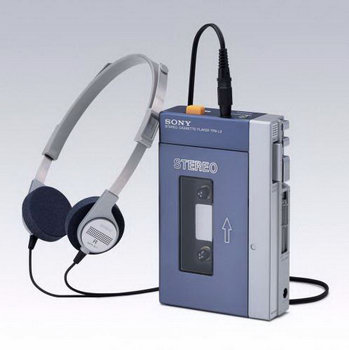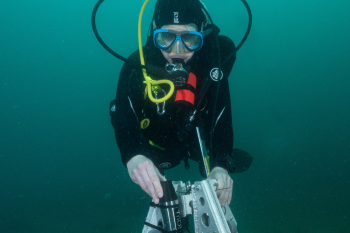© Pint of Science, 2026. All rights reserved.
Mood, community and more: How music makes our world
Music is an art form with a long history and a valued role as entertainment. Research is also revealing how it can support our mental health and foster community connections.
A multifaceted research discipline
Since the mid-1900s music research has spanned the domains of physics (how instruments create sound) and physiology (how our sensory systems allow us to hear sound) as well as experimental and social psychology.
In the latter category, scholars have identified multiple levels at which the impacts and influence of music can be explored. For individuals, research might focus on the impact of personality on music preferences; amongst individuals, it might be the use of body language by members of an ensemble performing together; and at a broader societal level, it might be stereotypes about who can or should play a certain musical instrument.
One factor which has transformed how we create and engage with music today, both individually and communally is, of course, technology. Music is more accessible than ever, paving the way for many and varied musical encounters - and research opportunities too.
Meet Dr Amanda Krause
Modern-day musical experiences and their impacts on our lives are the focus of researcher and long-time Pint of Science Australia presenter Dr Amanda Krause.
Amanda is a senior lecturer at James Cook University and the president of the Australian Music and Psychology Society. Having played oboe, saxophone and percussion in years gone by, she now dedicates her time to research in the discipline of music psychology.
When asked about the influence of her work on her own music listening habits, Amanda shared an anecdote from her master’s research. She had a huge iTunes library at the time and came to realise just how many tracks she hadn’t listened to. Instead of just adding more of them to the queue, she was inspired to change things up more dramatically, listening to songs in isolation from their albums, juxtaposing different genres and then questioning and reflecting on the effects this experimentation had.
These days Amanda and her colleagues are asking questions like these on a societal scale. With music playing a part in more life experiences and activities than ever, what impact is it having?
Music and your mood
Whether you’re a listener, composer or performer, engaging with music could significantly improve your mental (and even physiological) wellbeing. It can mitigate stress, relieve anxiety and support relaxation, and it might even have a preventive health effect, bolstering wellbeing before it gets worn down.
What makes for a mood-boosting song likely depends on the individual, and there are situational factors to consider too. For a fast-paced workout, you might sync a song’s tempo to the pace you're aiming for. If it’s productivity that you’re after, loud music with a fast beat might be detrimental, especially during a particularly difficult task. However, scheduling a music break before you need to concentrate could be beneficial!
Listening to music can also support the development of self-compassion, as researcher and PhD candidate Sabrina McKenzie has found. Sabrina shared her findings at Melbourne university’s Three Minute Thesis competition (the grand final, no less!) in 2024:
As the benefits of music for individuals continue to emerge, so do benefits at the community level.
Music and community
Many of us today listen to music with headphones, but it doesn’t always have to be this way - nor has this mode of music listening always been a solo experience. The very first Sony Walkman, released in 1979, had two headphone jacks for the very purpose of sharing songs!

Sony TPS-L2. Image credit: The Walkman Archive
Even if you are listening alone in a physical sense, what you’re listening to and how you do so can make a difference. Listening to the radio, for example, can fill the silence of an otherwise empty home, and hearing the familiar voice of a favourite host can offer a welcome sense of human connection.
On streaming platforms, collaborative playlists, cover art and extra creator content can provide ways and prompts for connection with fellow listeners. A song recommendation from a friend is also more likely to have resonance than the algorithm’s latest suggestion.
Moving offline, concerts, festivals and even ‘music playgrounds’ can transform public spaces into interactive musical environments, encouraging collaboration and connection and bridging social barriers. There are also marked benefits to be realised from providing musical education to the youngest members of our community.
For all their manifestations, the benefits of music aren’t limited to listening either. There is value in the visual cues provided by a performer’s body language and facial expressions and the feeling of deep bass frequencies right through one’s body too. In sum, no matter how you engage, music has something for you!
Moved to find out more about music?
You can hear from researchers in the fields of music psychology and more during our annual festival, being held from 19 to 21 May 2025. Dr Amanda Krause will present ‘How and why do people listen to music today?’ at the Townsville Brewing Co on Monday 19 May 2025.
Find out more about this year's events and book tickets on our festival page.
Until then, there are myriad reasons to say thank you for the music and thank you to the researchers uncovering its benefits!
References
Anglada-Tort, M., Lee, H., Krause, A. E., & North, A. C. (2023). Here comes the sun: music features of popular songs reflect prevailing weather conditions. Royal Society Open Science, 10(5). https://doi.org/10.1098/rsos.221443
Design Museum (n.d.). Sony Walkman. [online] Design Museum. Available at: https://designmuseum.org/discover-design/all-design-objects/sony-walkman.
Fancourt, D & Finn, S. (2019). What is the evidence on the role of the arts in improving health and well-being? A scoping review. World Health Organization. Regional Office for Europe. https://iris.who.int/handle/10665/329834.
Farnsworth, P.R. (1958). The social psychology of music. New York: Dryden Press.
Fiveash, A. (2024). Can listening to music make you more productive at work? [online] The Conversation. Available at: https://theconversation.com/can-listening-to-music-make-you-more-productive-at-work-241123.
Freenotes Harmony Park (2024). Why Music Playgrounds Foster Community Engagement. [online] Freenotes Harmony Park. Available at: https://www.freenotesharmonypark.com/blogs/why-music-playgrounds-foster-community-engagement/.
Krause, A.E., Scott, W.G., Flynn, S., Foong, B., Goh, K., Wake, S., Miller, D. and Garvey, D. (2021). Listening to music to cope with everyday stressors. Musicae Scientiae, 27(1), p.102986492110303. doi:https://doi.org/10.1177/10298649211030318.
Krause, A. E., & Fletcher, H. (2023). The purpose of radio and how it supports older adults’ wellbeing. Frontiers in Computer Science, 5. https://doi.org/10.3389/fcomp.2023.1111806
McCrary, J.M., Altenmüller, E., Kretschmer, C. and Scholz, D.S. (2022). Association of Music Interventions With Health-Related Quality of Life: A Systematic Review and Meta-analysis. JAMA Network Open, [online] 5(3), pp.e223236–e223236. doi: https://doi.org/10.1001/jamanetworkopen.2022.3236.
North, A.C. and David John Hargreaves (2008). The social and applied psychology of music. Oxford: Oxford University Press.
Putter, K.C., Krause, A.E., Vidas, D. and North, A.C. (2023). Examining the Lyrical Content and Musical Features of a Crowd-Sourced, Australian Pandemic Playlist. Music & science, 6. doi: https://doi.org/10.1177/20592043231215632.
Savage, P.E., Loui, P., Tarr, B., Schachner, A., Glowacki, L., Mithen, S. and Fitch, W.T. (2020). Music as a coevolved system for social bonding. Behavioral and Brain Sciences, [online] 44(59), pp.1–36. doi: https://doi.org/10.1017/S0140525X20000333.
Sutela, K. and Ahonen, O. (2024). ‘I can feel the rhythm, and it is somehow nice’: Deafness challenging the hierarchy of senses in music education. Research Studies in Music Education. doi: https://doi.org/10.1177/1321103x231223864.
The Walkman Archive. (n.d.) https://www.walkman-archive.com/gadgets/walkman_sony_01_tps-l2_eng_v3.htm




